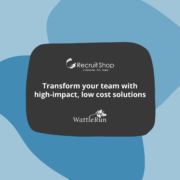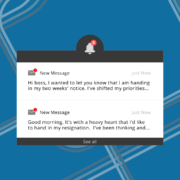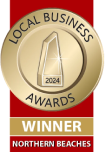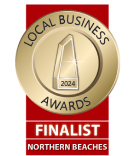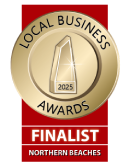How to Run Productive Interviews
Interviews are a crucial stage in the hiring process, offering employers a firsthand glimpse into candidates’ potential. However, conducting productive interviews requires more than just asking a series of questions – it’s about conducting a productive discussion that shows the potential and limitations of each candidate while ensuring a pleasant and informative experience for both parties involved.
As experts in recruitment, we understand the nuances of running productive interviews, and we’re here to share our insights with small business owners looking to refine their interviewing skills. Join us as we explore the key strategies for running productive interviews that yield meaningful results.
Preparing for Success
Clarify Objectives: Before diving into the interview, take a moment to clarify your objectives and identify the key traits, skills, and experiences you’re seeking in a candidate. This will serve as your compass throughout the interview process, helping you stay focused and evaluate candidates effectively.
Review the Resume: Familiarise yourself with the candidate’s resume and application materials beforehand. Pay attention to their experiences, achievements, and qualifications, and identify areas you’d like to explore further during the interview.
Craft Thoughtful Questions: Develop a set of open-ended questions that delve beyond surface-level responses and encourage candidates to showcase their skills, experiences, and personality traits. Tailor your questions to assess specific competencies relevant to the role and your company culture.
Setting the Stage
Create a Welcoming Environment: Start the interview positively by welcoming the candidate warmly and creating a comfortable environment. Offer refreshments, introduce yourself and any other interviewers present, and outline the agenda for the interview to set expectations.
Build Rapport: Establish rapport with the candidate by engaging in casual conversation and actively listening to their responses. Building rapport helps put candidates at ease and fosters open communication throughout the interview. Need help with rapport-building? Check out this blog post.
Outline the Structure: Provide an overview of the interview structure, including the types of questions you’ll be asking and the estimated length of the interview. This helps candidates feel prepared and allows for a smoother flow of conversation.
Conducting the Interview
Active Listening: Practice active listening during the interview by giving candidates your full attention and responding thoughtfully to their answers. Avoid interrupting or rushing through questions, and take notes to capture important insights for later evaluation. While taking notes maintain eye contact as best you can.
Probe for Details: Delve deeper into candidates’ responses by asking follow-up questions that seek clarification or additional examples. Probing for details allows you to gain a deeper understanding of candidates’ experiences and competencies.
Assess Cultural Fit: Use the interview to assess candidates’ fit with your company culture by asking questions that reveal their values, work style, and interpersonal skills. Pay attention to how candidates articulate their experiences and how they align with your organisation’s ethos.
Remote/Online Interviews
In the modern age, conducting interviews online has become increasingly common. Here are some tips for running productive remote interviews:
Test Technology in Advance: Ensure your video conferencing software is set up and functioning properly before the interview. Test your audio, video, and internet connection to avoid technical glitches during the interview.
Create a Professional Setting: Choose a quiet, well-lit space for the interview and minimise distractions in the background. Dress professionally – if you’re wearing shorts and thongs off-screen, maintain business attire for what part of you is on-screen.
Establish Clear Communication: Communicate the logistics of the remote interview, including the platform you’ll be using, the interview schedule, and any additional instructions or expectations.
Engage Effectively: Maintain eye contact, smile, and actively engage with candidates throughout the interview to create a connection despite the virtual setting. Use nonverbal cues, such as nodding and gestures, to show interest and attentiveness.
Wrapping Up
Address Candidate Questions: Reserve time at the end of the interview to address any questions or concerns the candidate may have about the role, company, or interview process. Encourage open dialogue and provide honest, transparent answers to help candidates make informed decisions.
Express Appreciation: Conclude the interview positively by expressing gratitude for the candidate’s time and interest in the position. Reiterate the next steps in the hiring process, such as when they can expect to hear back from you or any follow-up steps required.
Reflect and Evaluate: After the interview, reflect on the candidate’s performance and compare their responses against your predetermined criteria. Evaluate each candidate objectively based on their qualifications, experiences, and cultural fit, and use this information to inform your hiring decisions.
Partnering with Recruit Shop for Success
At Recruit Shop, we understand the importance of running productive interviews that provide quality insights and drive informed hiring decisions. Our team of recruitment specialists market your vacancy across all major job boards, as well as our database. Then, our consultants screen & shortlist every applicant, before providing you with a list of interview-ready candidates. This ensures you’re taking time to interview candidates suited to your role and your business.
Are you keen to interview some great candidates? Contact Recruit Shop today to learn more about our comprehensive recruitment services and how we can help you find the perfect candidates for your business. Together, let’s build you a workforce that exceeds your expectations.
Read this next: 3 Tips to Improve Interview Efficiency



